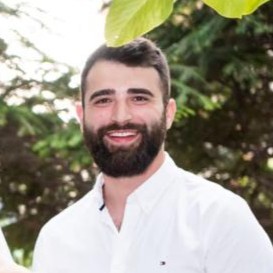What comes to mind when you hear about Colorado? Its breathtaking mountains? Maybe its national parks or world-class ski resorts? These are certainly some of the state’s highlights, but they overshadow a pressing issue that goes unnoticed by many: access to clean water in Colorado’s underserved communities.
For some, a turn of the tap may provide fresh water; but for others, especially in remote or tribal areas of Colorado, this is not such an easy luxury.
The Water Dilemma
Recent studies paint a sobering picture of water access disparities in Colorado. A 2021 report by the Colorado River Water & Tribes Initiative found that among racial groups in the United States, Native American households are the most likely not to have access to piped water services. In fact, some tribal residents are 67 times more likely than other Americans to live without access to running water.
However, the issues aren’t confined to tribal communities alone. Results from a 2024 investigation revealed that many Colorado mobile home park inhabitants struggle with inconsistent and possibly dangerous drinking water. According to a statewide survey, 41% of respondents living in these mobile home parks expressed their distrust or unwillingness to consume their tap water.
The San Luis Valley’s groundwater has been found to contain significantly high arsenic levels compared to many other locations across the U.S. Research carried out in this area has shown that nearly 12% of tested household wells had detectable amounts of arsenic.
In the High Valley Park mobile home community, a well that provides water for 85 people has been testing above the legal arsenic levels since 2006. The latest test showed 19 micrograms per liter (μg/L), surpassing the Environmental Protection Agency’s (EPA) limit of 10 μg/L.
In urban areas like northeast Denver, historic and ongoing water and air pollution has residents on edge about contamination. Life expectancy for locals in Globeville and Elyria-Swansea is nearly 8 years shorter than the rest of the state, with higher rates of asthma, cancer, and heart disease.
Towards Clear Waters: Initiatives and Plans
Despite all these issues, there seems to be some light at the end of the tunnel. Colorado has started taking measures toward providing clean drinking water to everyone.
New Legislation: In 2023, Colorado enacted a regulation that empowers the state to test the water quality in mobile home parks. If they find any issues, this law requires owners to take action and fix them. This summer, officials began carrying out tests at hundreds of parks all across the state.
Federal Funding: The EPA recently announced $25 million in funding to help small, underserved, and disadvantaged communities access clean and safe drinking water. This money will support projects to upgrade infrastructure and improve water reliability.
Tribal Access to Clean Water Act: Colorado Senators Michael Bennet and John Hickenlooper, joined by Congressman Joe Neguse, introduced a bill named the Tribal Access to Clean Water Act in 2023. It would increase financing for tribal water projects, an investment in bettering local Indigenous infrastructures.
Community Solutions: Apple Tree Park in Western Colorado is a great example of the steps being taken to improve water quality within mobile home communities. Some of the measures include routine system flushing on a more regular basis to get rid of any iron and additional metals that may have gathered, as well as setting up water filling stations. The state is providing direct funding through an assistance grant to help install these stations.
What Can We Do?
As Colorado residents, there are several ways we can contribute to ensuring clean water access for all:
- Stay informed about water issues in your community and across the state.
- Support legislation and initiatives aimed at improving water infrastructure and quality, such as the recent water measures passed by Colorado lawmakers.
- Participate in local water conservation efforts, including adhering to outdoor watering restrictions when implemented.
- Advocate for equitable water policies that consider the needs of underserved communities.
- Volunteer with WEco and take action through our “21 Ways to Care for Colorado Water” campaign.
Riding the Wave Towards Water Equity
Colorado has always been about community spirit. From from grassroots efforts to communities bonding together in crisis it is how we face adversity that truly defines us. The issue of water access and cleanliness may seem mighty, but collectively, we can chart a course toward solutions.
It won’t be an easy ride. Old infrastructure, geographic isolation, complex regulations, limited funding, and climate change impacts aren’t something you can tidy up overnight. But, Colorado’s spirit is not one to back down from a challenge.
 Adrian is a former marine navigation officer turned writer with more than 3 years of experience in the field. He loves writing about anything and everything but specializes in covering smart technology and gardening. When he’s not writing, Adrian enjoys spending time with his family and friends or hiking in the great outdoors.
Adrian is a former marine navigation officer turned writer with more than 3 years of experience in the field. He loves writing about anything and everything but specializes in covering smart technology and gardening. When he’s not writing, Adrian enjoys spending time with his family and friends or hiking in the great outdoors.


 Print
Print